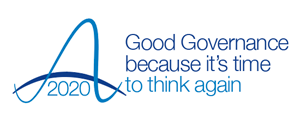Treasure your chief operating officer
18 June 2020

As the NHS ramps up its services and starts to treat significant numbers of elective patients again, hospitals and services become much more challenging to manage.
The care and treatment of patients for planned interventions is shifting back to secondary from primary care, in line with national guidance, and so risk is shifting with them. In this context chief operating officers (COOs) are developing plans for how this can be done safely while ensuring that patients with the most pressing clinical needs are prioritised.
Biggest-ever challenge
This is probably the single biggest challenge that many COOs have faced. Balancing the need to crack on and treat patients, some of whom are in urgent need and have waited much longer than expected, with the absolute imperative of maintaining social distancing and adhering to infection prevention and control (IPC) is a tightrope to be trodden with extreme care.
As set out in a previous bulletin, there are many more patients on waiting lists than there have been for a very long time and many of them have waited for much longer than at any time since the 1990s.
Before services can be re-started, patients on these lists have to be risk assessed to establish how urgent their treatment actually is and then assigned to a priority (1-4). The most urgent (priorities 1 and 2) must be treated the quickest – within four weeks.
Again, this sounds like a simple administrative task and again, it is anything but.
Quite apart from the challenge of the sheer volume of patients to be assessed undertaking a clinical assessment of this scale requires the marshalling of clinical resources, the right information to be available in the right way and timely communication with patients and their GPs.
Then there’s the business of making the physical changes that enable social distancing and good IPC practice in what would normally be crowded clinical spaces including outpatients, theatres and diagnostic facilities, as well as wards.
Two-metre rule restrictions
The two-metre rule places significant limits on the number of people that can be safely accommodated, even for relatively short periods, in hospital buildings. This has a direct impact on the ability of a service to actually see and treat people, meaning far fewer will be able to access care than in pre COVID-19 times.
Patients booked for surgery will need to be tested before admission, which introduces a new step and additional cost. Cleaning must be enhanced, particularly between patients and especially where aerosol-generating procedures have been carried out. The pressures of ensuring the availability of appropriate PPE may have faded from the news but they haven’t gone away and many trusts continue to operate with only a very few days’ supply.
These are just some of the issues that COOs have to think about and plan for. They will be working through their divisional teams and the executive team will have wrapped strong clinical governance processes around planning to ensure that the board can be assured on safety and quality, as well as assuring that patients will be treated in line with national requirements as set out by NHS CEO Sir Simon Stephens.
Questions for the COO
Some questions boards might like to ask of their COOs and executives include:
- Have all our patients on waiting lists been risk assessed and prioritised by the clinical teams?
- Do the service restoration plans ensure that patients are treated in line with clinical priority?
- Is there a clinical governance framework in place for the ongoing management of the waiting list?
- Have the CNO and CMO assured the safety of the new patient pathways?
- Have the CNO and CMO assured the safety of the physical changes to clinical and waiting areas, including alignment with IPC guidance?
- Are we communicating with staff effectively to ensure they feel informed and listened to?
- Are patients and their GPs receiving good and timely communication about their treatment plans?
- How can we continue to support executives, leaders and staff in the organisation at this extraordinary time?
The NHS is blessed with many high-quality COOs and the role is one of the most demanding in the service – if not the most demanding. There are lots of vacancies and good interim COOs are in high demand and are relatively expensive. If you have a good one, we would advise looking after him or her; indeed, treasure them.
If this update prompts any comments or questions, we are keen to hear from you. Please call us on 07732 681120 or email advice@good-governance.org.uk.
Darren Grayson
Executive Director
(Partner)
